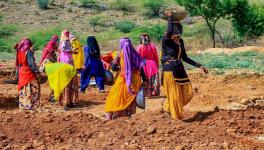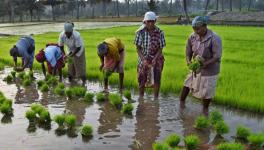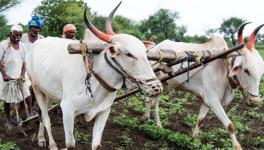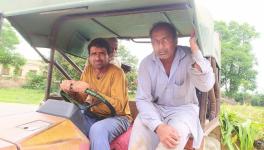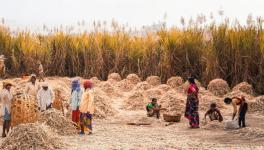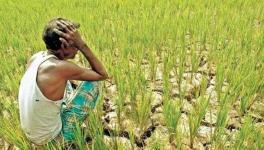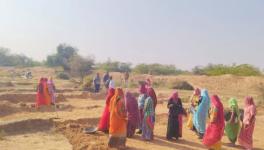Agricultural Workers Demand Rights For India's Rural Landless
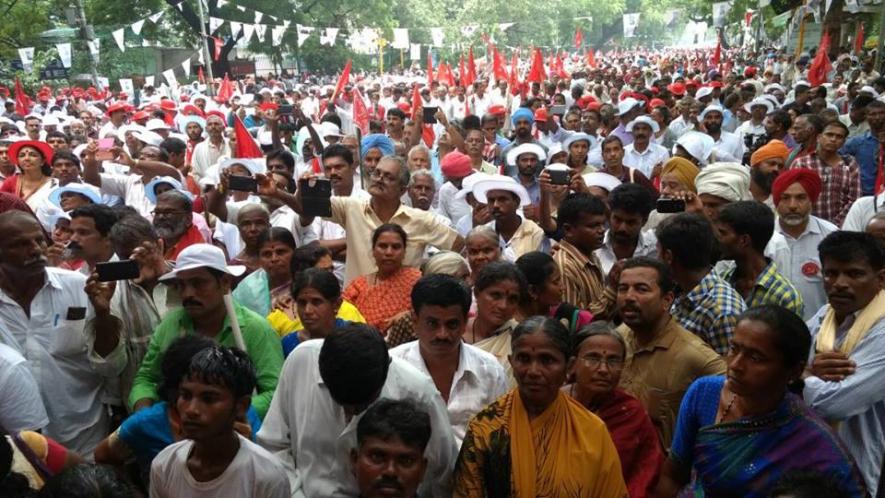
Thousands of agricultural workers marched to Parliament Street in Delhi on August 9 demanding rights for landless rural workers — a steadily growing section among the Indian population.
Organised under the All India Agricultural Workers Union (AIAWU), the protesting workers submitted a memorandum of demands addressed to the Prime Minister, Labour Minister and Rural Development Minister.
The workers drew attention to the living conditions of the poorest 30% of our population, which remains homeless and jobless, while highlighting that the proportion of landless people in rural India had reached around 55% as far back as 2011.
“The essence of the problem lies in the growth of the landless in our rural society from 28.1% in 1951 to 37.8% in 1971, from 40.3% in 1991 to less than 55% in 2011,” said the memorandum.
“No less than 30 lakh farmers lose their land each year because of debt, uncertain weather conditions and fluctuating prices of crops. In these circumstances, the issue of employment becomes necessary for the survival of not less than 30 crore people.”
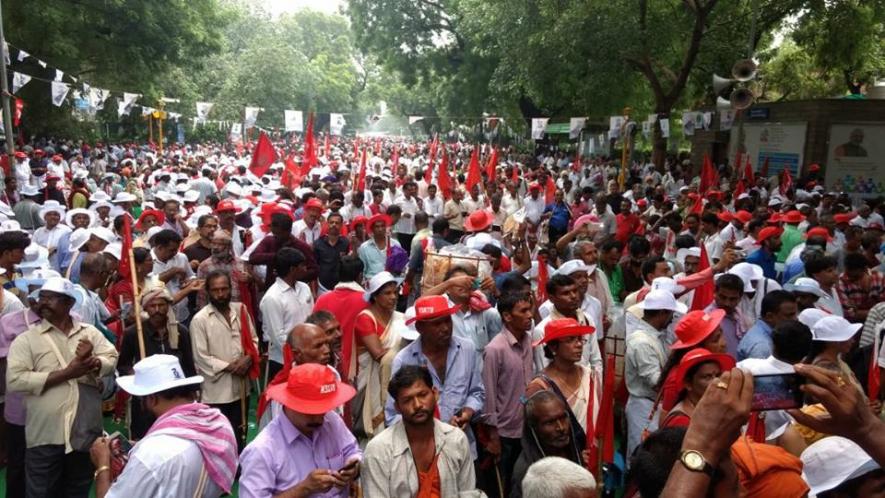
Underscoring how important the Mahatama Gandhi National Rural Employment Guarantee (MNREGA) scheme was to “secure the lives and livelihood of the rural poor”, the Union said the scheme had been badly implemented and neglected.
“Instead of 100 days work the figures are only 37 days per family. The wages of labour under MNREGA are less than the minimum wages declared by different states and often thousands of crores of dues have not been paid for work done as a result of not receiving central funds in time,” the memorandum stated.
Demanding that the Centre not delay wages — a matter of life and death for MNREGA workers — the Union asked for “a minimum grant from the centre of Rs. 60,000 crores” as a safety net for workers.
The AIAWU also demanded that the minimum guaranteed days of work under the scheme be raised to 250 days, from the current 100 days, at the rate of the minimum wage of the state concerned.
Further, the AIAWU pointed out that daily wage earners doing menial jobs, or casual labourers, were excluded from the lists of beneficiaries of the National Food Security Act 2013, in most parts of the country.
“We demand that the government launch a new drive to include all agricultural labourers, scheduled castes and tribes to be included among the beneficiaries or be given the amount due to them as a matter of principle,” the memorandum said.
The Union asked the Centre to ensure that migrant labourers be registered and included in all welfare schemes ensuring them shelter, minimum wages and social security.
The workers demanded a minimum pension of Rs. 3000 every month for old and destitute agricultural labourers.
Besides, the AIAWU pointed out that there was more than enough ceiling-surplus land “vested in gram panchayats”, along with “waste and forest land that has been inhabited for generations by adivasis without pattas.”
“These lands should be distributed among the landless dalits, adivasis and agricultural labourers rather than being distributed to corporate and land mafias through the reversal of land reforms and the arbitrary acquisition of land by government agencies,” said the memorandum.
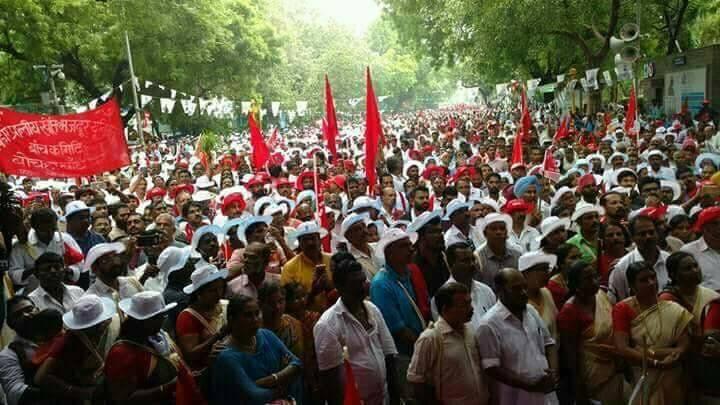
In case of land acquisitions, agricultural labourers losing their jobs should be compensated adequately as land owners are, the Union demanded.
“We further demand that every homeless family we provided with a home and a lavatory,” the memorandum added.
The workers also demanded that the government eradicate bonded and child labour, prevalent despite legislations, and take steps to protect vulnerable sections of rural workers like women, dalits, adivasis and minorities.
The AIAWU memorandum concluded with the demand for the passage of a comprehensive central legislation for agricultural labourers — the draft legislation for which has been existing for nearly 40 years.
Get the latest reports & analysis with people's perspective on Protests, movements & deep analytical videos, discussions of the current affairs in your Telegram app. Subscribe to NewsClick's Telegram channel & get Real-Time updates on stories, as they get published on our website.









